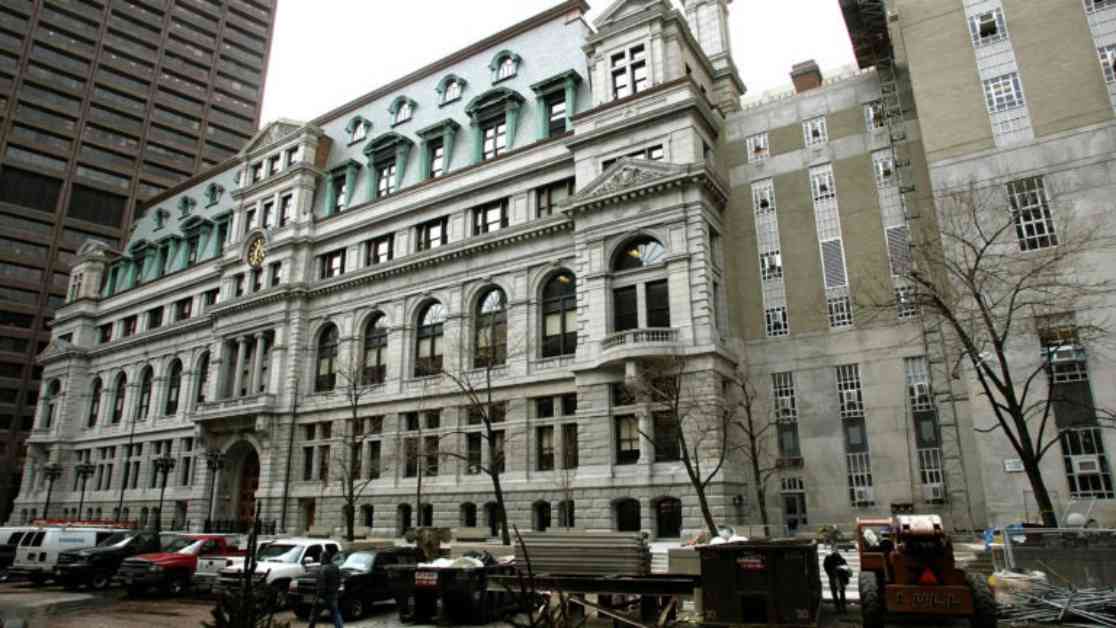The lawsuit filed by prisoners over delayed parole hearings has sparked controversy and concern for the plaintiffs awaiting their chance at freedom. Seven incarcerated men, who became eligible for parole following a 2024 Supreme Judicial Court ruling, are taking legal action against what they perceive as unjust delays in their parole hearing scheduling. These delays have left them in limbo, awaiting the opportunity to present their cases for early release.
In January, the Supreme Judicial Court’s decision in Commonwealth v. Sheldon Mattis changed the landscape for young adults facing life without parole sentences for first-degree murder convictions in Massachusetts. The ruling stipulated that individuals under the age of 21 at the time of their crime could not be sentenced to life without parole. This decision has affected a significant number of incarcerated individuals, including the plaintiffs in this case.
The plaintiffs, who were classified as “emerging adults” due to their ages at the time of the crime, have served over 15 years in prison and are now eligible for parole. However, despite meeting the criteria for consideration, none of these men have had a parole hearing scheduled or conducted. This lack of progress has led to frustration and legal action to prompt the system to fulfill its obligations to these individuals.
Parole Hearings Delayed
Since the Mattis decision, there have been 18 parole hearings conducted, with eight individuals, some incarcerated since 1970, granted freedom through this process. However, the vast majority of those affected by the ruling, particularly the emerging adults, are still awaiting their turn for a parole hearing. Attorney Ryan Schiff, who represented the plaintiffs in the Mattis case, highlighted that over 200 individuals were impacted by this decision, with 127 emerging adults already eligible for parole but facing significant delays.
The plaintiffs in this case, including Robert Francis, Allen Alston, Tanzerius Anderson, Lewis Franklin, Jabrai Copney, Sam Smith, and Christopher Middlemiss, are currently imprisoned in various facilities across Massachusetts, ranging from minimum to maximum security. These men have diverse backgrounds and histories, yet they share the common goal of seeking a fair chance at parole and reintegration into society.
Complex Legal Process
While the Massachusetts Parole Board is tasked with scheduling parole hearings within 60 days of an individual’s eligibility, the reality is far from meeting this standard for the emerging adults awaiting their turn. The complaint filed against Governor Maura Healey, Secretary of the Executive Office of Public Safety and Security Terrence Reidy, Chair of the Massachusetts Parole Board Tina Hurley, and the Parole Board itself underscores the urgency and necessity of expediting these hearings.
A spokesperson for the Parole Board emphasized the commitment to facilitating these hearings promptly but acknowledged the complexity of the process. With numerous stakeholders involved, including legal representatives, board members, and support organizations, the coordination required to ensure fair and thorough hearings is essential. The board continues to explore options to streamline the process while upholding the integrity of the parole system.
Attorney Lisa Newman-Polk, representing three of the plaintiffs, emphasized the importance of this lawsuit in translating the Mattis decision into tangible opportunities for her clients. Through understanding the personal stories and struggles of these men, she highlighted the transformative potential of parole and the chance for redemption they deserve. The lawsuit serves as a beacon of hope for those waiting for their shot at a second chance.
As the legal battle unfolds, the focus remains on expediting the parole hearings for these incarcerated individuals who have been in a holding pattern for far too long. The voices of the plaintiffs and their advocates are a reminder of the human impact of delayed justice and the urgent need for reform in the criminal justice system. Through legal action and public awareness, the hope is to bring attention to the plight of those awaiting their turn for a fair and timely parole hearing.






